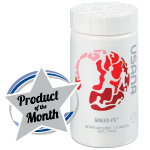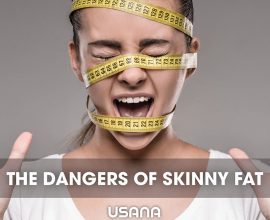
Fit body, fit mind?
Written by Ravinder Lilly – Dietitian and Health Writer
 Do you constantly forget where you put your phone? Overlook where you put your keys? Miss or almost miss out on important meetings? With ageing and in times of stress, you’re bound to feel a little fuzzier than usual. But absent-mindedness could also be down to the way your brain is firing and functioning.
Do you constantly forget where you put your phone? Overlook where you put your keys? Miss or almost miss out on important meetings? With ageing and in times of stress, you’re bound to feel a little fuzzier than usual. But absent-mindedness could also be down to the way your brain is firing and functioning.If you want to keep your brain sharp and fitter for longer? There are lots of things you can do. For example:
- Eat smarter. Enjoy foods that contain lots of antioxidants from highly-coloured fruits and veggies including berries, green leaves and orange-coloured produce. Antioxidants help your brain tolerate daily stresses and help you learn at all ages including during ageingi. Choose low GI so your brain and body benefits from slow release energy without the highs and slumps that can result from eating too many over processed carbohydrates (sugars). To find out more about GI, log onto Glycemic Index.
- Cut down on total fat and especially saturated fats plus keep your cholesterol levels under control. Omega-3 fats from oily fish (even white fish contain some) plus nuts like walnuts and flaxseeds provide these powerful anti-inflammatories that can help keep your blood vessels free flowing.
- Do a daily mental workout. Learn something new – like playing a musical instrument or learning and practicing a language helps exercise your brain. Or, try crosswords, chess or computer games and puzzles like Sudoku. Challenging your brain helps to keep it fit and your body releases more dopamine when you experience something new or challenge your brain. Dopamine is a chemical messenger that helps signal transmission to flow freely in your brain.
- Get your circulation going. Exercise is vital for mental agility – it gets your heart pumping, boosting circulation. The resulting better blood flow means more nutrients and oxygen are carried around your body including your brain. Exercise also helps your mood by releasing mood-lifting endorphins – regular exercise has been shown to help cut depression and anxiety whilst helping self-assurance. So go for at least half an hour of moderate, planned exercise on most days – more if you can manage it (remember to check with your doctor first if you haven’t exercised for some time or if you have a medical condition).
- Get some rest. Your body and mind regenerate when you get enough restful sleep. You’ll also learn better, and stress less. Activities such as yoga and tai chi get a double tick of approval as they combine exercise with calming stress relief.
- Be boosted by buddies. Get out and about and be stimulated by friends and family – positive human relationships help to enhance your mood and stimulate your senses – but only if you surround yourself with positive people. Studies show that companion animals can really help boost your sense of wellbeing, too.
- Think about a supplement. USANA’s Ginkgo-PS™ is especially formulated to help boost your brain power. It contains two active ingredients – ginkgo biloba and phosphatidylserine (pronounced FOS-fuh-TIE-dil-sair-een) or PS.
Because of its blood circulation boosting activity, Ginkgo-PS may be used to treat intermittent claudication (pain in the legs caused by inadequate blood flow). It may even help hearing as the organs of the ear are highly sensitive to a lack of oxygen. The other ingredient, phosphatidylserine (PS), an important fat with many functions. In conditions that affect memory loss, nerve cells degenerate for reasons that aren’t fully understood. PS is one of the main components of the membranes that surround nerves and plays a role in cell signalling. It may protect cell membranes and may even protect cells from degenerating. PS also increases the fluidity of the membrane improving the entry of nutrients and the exit of wastes from the cell. This unique fat enables your brain cells to metabolise glucose and release neurotransmitters which are vital for healthy brain function.
Find PS from foods like fish, rice and leafy green vegetables. Soy lecithin is one of the best sources of PS, but it still only contains only 0.4% PS. So, you’d have to take 6250 mg of concentrated soy lecithin to provide the same amount of PS as you’ll find in single Ginkgo-PS tablet.
While both ginkgo and PS have their own recognised health benefits, combing the two brings better efficacy. For example, a study published in Human Psychopharmacology: Clinical and Experimental stated ‘administration of GBE [Ginkgo biloba extract] complexed with phosphatidylserine resulted both in improved secondary memory performance and significantly increased speed of memory task performanceii.’ The benefits weren’t seen results when only Ginkgo biloba was used.
Don’t forget…
Because digestion gets less efficient with age, taking extra vitamins may help preserve memory especially if the diet is insufficient. A study from the University of Sydney looked at 117 people in a retirement setting. They were put through a range of mental tests and results showed that those who regularly took vitamin C, scored higher on the testsiii. Other key micronutrients that are essential for healthy brain function include the B vitamins including vitamin B12 and vitamin B6. Vitamin B9 (folic acid) may be especially important because it can help to lower levels of the amino acid homocysteine which is known to damage brain cells. Folate is Latin for leaf so you’ll find it in leafy green vegetables and fruits and wholegrain cereals. The mineral zinc is an important brain protector but special place has to go to magnesium – which might help to protect the brain from toxins. Find them all in your daily Essentials™ or HealthPak™.
More about Ginkgo-PS
USANA’s Ginkgo-PS delivers the right amount of these key ingredients to provide real support for memory and cognition. USANA uses only standardised Ginkgo biloba for consistent potency.
Note:
Speak with your health care professional about any complementary medicines you use. May have an additive anticoagulant effect when taken with aspirin, warfarin or other blood-thinning drugs or supplements so consult your doctor if you’re already taking a prescribed anticoagulant or aspirin.
USE ONLY AS DIRECTED. ALWAYS READ THE LABEL. Vitamin supplements should not replace a balanced diet.
Ginkgo-PS is laboratory tested, quality guaranteed. Meets British Pharmacopoeia (BP) specifications for potency, uniformity and disintegration where applicable.
References:
i: Polidori MC, Pratico D, Mangialasche F, Mariani E, Aust O, Anlasik T, Mang N, Pientka L, Stahl W, Sies H, Nelles G. High fruit and vegetable intake is positively correlated with antioxidant status and cognitive performance in healthy subjects. J Alzheimers Dis 17:4 (August 2009). Accessed 24 January 2013. Available from: http://www.eurekalert.org/pub_releases/2009-09/ip-hf090809.php
ii: Kennedy DO, Haskell CF, Mauri PL, Scholey AB.Hum Psychopharmacol. Acute cognitive effects of standardised Ginkgo biloba extract complexed with phosphatidylserine. 2007 Jun;22(4):199-210
iii: Michael Paleologos, Robert G. dimming, and Ross Lazarus. Cohort Study of Vitamin C Intake and Cognitive Impairment. Vol. 148, No. 1. American Journal of Epidemiology. Accessed 24 January 2013. Available from: http://aje.oxfordjournals.org/content/148/1/45.full.pdf




